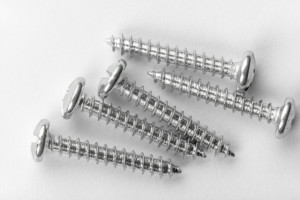 Kaizen (改善), or continuous improvement, is a cornerstone of lean manufacturing. If you stop becoming better, you will fall behind. But not all improvement activities are equal. There are different ways to do kaizen projects suitable for different situations. Let me give you an overview:
Kaizen (改善), or continuous improvement, is a cornerstone of lean manufacturing. If you stop becoming better, you will fall behind. But not all improvement activities are equal. There are different ways to do kaizen projects suitable for different situations. Let me give you an overview:
Kaizen
Making the Problem go Away Is NOT Improvement
Managing problems  is an important part of manufacturing because it allows companies to identify and address issues that can impact product quality, production efficiency, and overall profitability. However, it is not to be confused with actual improvement. While taking care of the problem (hopefully) makes the problem go away, actual kaizen requires that the problem should not come back.
is an important part of manufacturing because it allows companies to identify and address issues that can impact product quality, production efficiency, and overall profitability. However, it is not to be confused with actual improvement. While taking care of the problem (hopefully) makes the problem go away, actual kaizen requires that the problem should not come back.
How to Reduce Your Lot Size Part 3—Customer, Machine, Leveling, and Tradition
 This is the third and last post in my series on how to reduce the lot size. The first post gave some introduction and how to approach the problem of reducing lot sizes. The second post looked in more detail at how to reduce lot sizes due to changeovers, container size, and shipment size. This final post will look at the remaining causes of customer order size, machine batch size, the abominable leveling pattern, and tradition.
This is the third and last post in my series on how to reduce the lot size. The first post gave some introduction and how to approach the problem of reducing lot sizes. The second post looked in more detail at how to reduce lot sizes due to changeovers, container size, and shipment size. This final post will look at the remaining causes of customer order size, machine batch size, the abominable leveling pattern, and tradition.
How to Reduce Your Lot Size Part 2—Changeover, Container, and Shipments
 In my last post I gave some basics on how to reduce the lot size in order to reduce both inventory and fluctuations (mura). There are many different reasons why you may have larger lot sizes in the first place. Depending on the root cause, the possible solution may differ. In this and the next post I will look at these different root causes and possible solutions in more detail.
In my last post I gave some basics on how to reduce the lot size in order to reduce both inventory and fluctuations (mura). There are many different reasons why you may have larger lot sizes in the first place. Depending on the root cause, the possible solution may differ. In this and the next post I will look at these different root causes and possible solutions in more detail.
How to Reduce Your Lot Size Part 1—Introduction
 In lean, the perfect lot size is one. Ideally, you should be able to make your products in a lot size of one. However, especially in mass production, larger lot sizes are common. Getting down to smaller lot sizes, or ideally to a lot size of one, is not always easy, and sometimes may not even be economically feasible (yet!). Let me discuss ways to reduce lot sizes.
In lean, the perfect lot size is one. Ideally, you should be able to make your products in a lot size of one. However, especially in mass production, larger lot sizes are common. Getting down to smaller lot sizes, or ideally to a lot size of one, is not always easy, and sometimes may not even be economically feasible (yet!). Let me discuss ways to reduce lot sizes.
Where to Start Your Kaizen?
 To become lean, you need to improve your factory. Continuous improvement (kaizen) consists of many smaller and/or larger improvements. However, often the first challenge is where to start this improvement. Let me dig deeper into the possibilities and challenges of picking improvement projects, with a particular focus on systems that have multiple independent production lines, which makes everything trickier.
To become lean, you need to improve your factory. Continuous improvement (kaizen) consists of many smaller and/or larger improvements. However, often the first challenge is where to start this improvement. Let me dig deeper into the possibilities and challenges of picking improvement projects, with a particular focus on systems that have multiple independent production lines, which makes everything trickier.
